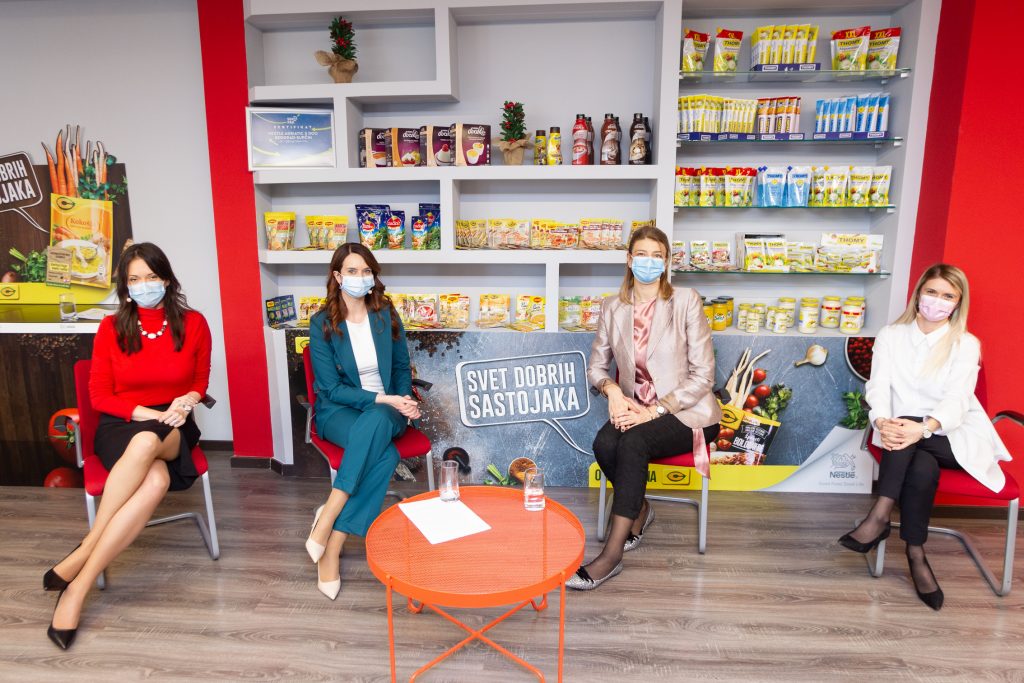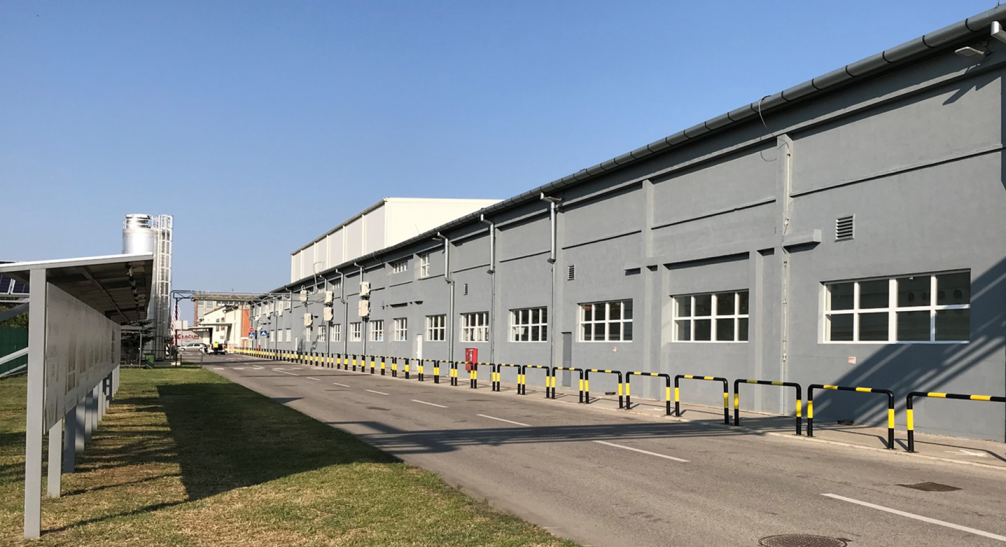Nestlé Serbia, Ministry of Environmental Protection, Ministry of Agriculture, Forestry and Water Management, Embassy of Switzerland, Municipality of Surcin, and Smart Kolektiv presented a joint plan for water purification and nature conservation in Serbia
A well with a pumping station with a capacity of 6 litres per second (average daily human consumption is from 2.5 to 5 litres of water) and a fat separator that separates oil and fat from rainwater that cost 120,000 euros are just a part of the modern infrastructure for water purification and saving of the Nestlé Surčin factory, which today proudly opened the doors of its plant for members of the media and partners. As part of a panel discussion organized on the occasion of World Water Day, live from Surčin, the company presented the results and goals in the field of sustainability.

In addition to the above, Nestlé also has the most modern wastewater treatment plant in Serbia, which is also the company’s largest local investment in the amount of 1.2 million euros. In addition to the state-of-the-art plant, Nestlé applies strict rules in its business in order to preserve, purify and save water, the result of which is 24,000 cubic metres of treated water in 2020 alone. This way, the Serbian Nestlé factory purifies 65,000 litres of water every day and makes it clean and safe for use. For comparison, a family of four consumes 600 litres of water per month.
The stand-out feature is that the water, which passes through the filters, can be reused after purification. The company especially takes care that all the water that returns to the watercourses is completely clean and does not pose a danger to the environment.
Apart from the Nestlé management, H. E. Urs Schmid, Ambassador of Switzerland to Serbia, Ivan Karić, State Secretary of the Ministry of Environmental Protection, Velimir Stanojević, State Secretary of the Ministry of Agriculture, Forestry and Water Management, Aleksandra Jelesijević Gligorić, Head of the Department for Local Economic Development in the Surčin Municipality and Milica Mišković, Program Manager of Smart Kolektiv participated in the panel discussion.
In her opening remarks, Marjana Davidović, General Manager of Nestlé in Serbia, pointed out that responsible company behavior towards society and the environment is an absolute priority, especially in times of crisis, and the best motivation for continuing these efforts is unconditional consumer confidence. Tanja Žigić, Nestlé Surčin Factory Manager pointed out that the Nestlé factory has a great responsibility towards the environment and acts responsibly towards the water in accordance with that: “By modernizing the production process and investing in the factory, Nestlé has managed to make significant savings and further preserve the environment. By reducing the dimensions of packaging material, its consumption has been reduced by as much as 50 tons per year, and thus the negative carbon dioxide emissions by 56 tons” said Žigic, recalling that in 2019 the factory became the first in Serbia to achieve ambitious The “Zero Waste to Landfill” goal, which means that not a gram of factory waste ends up in landfills, but is recycled or used for other purposes.
On behalf of the Ministry of Environmental Protection, the State Secretary, Ivan Karić remarked: “The Ministry is always there to help and cooperate … Companies such as yours can serve as an example for other companies operating in Serbia”
H.E. Urs Schmid, Swiss Ambassador to Serbia, said he was proud that a Swiss company was setting an example of corporate responsibility: “We are proud that Nestlé has introduced fantastic innovations in the food industry over the years, and that, despite industry trends, it has decided to operate responsibly and care for the local community. In addition to the incredible efforts to preserve the environment, we are very happy that Nestlé is investing in the future of young professionals through dual education and educational programs”

The Ministry of Agriculture, Forestry and Water Management is closely monitoring the commitment of companies to take care of the environment and improve processes that will lead to more responsible and efficient production, said Velimir Stanojević, State Secretary of the Ministry of Agriculture, Forestry and Water Management: “Nestlé is a company that re-examines its processes and looks for new ways to improve them each year. It is the kind of commitment that is needed in Serbia and it is a shining example for all entrepreneurs to think about future generations as well”
Aleksandra Jelesijević Gligorić, Head of the Department for Local Economic Development in the Surčin Municipality, praised the long-term cooperation with the company Nestlé. “We are fascinated by what you presented as a company because it is something we could strive for both as a society and as a state” said Jelesijevic Gligoric.
Milica Mišković, Program Manager of Smart Kolektiv, stated that she believes that large companies can play a positive role in social development and that they are actively working on promoting socially responsible business in Serbia. She also noted that it is crucial to know that a company’s socially responsible behavior need not have a bad effect on profits and that Nestlé is an example of such a company.
By investing in technology and cooperating with the authorities, local communities, producers, and consumers, Nestlé is actively working on the sustainability of water use, as well as its conservation, bearing in mind that 90% of wastewater in Serbia ends up in rivers and lakes without any treatment.
Ivanka Stojnić, Nestlé’s Sustainability Manager for the Southeast European market, led the media and partners through a “video tour” of the plant during the conference.
On World Water Day, Nestlé wants to raise awareness of responsible and sustainable use, invite individuals and other companies to treat the most important natural resources more rationally, and remind the public of significant efforts and investments to ensure a healthy and clean nature for future generations. On this occasion, Nestlé employees also contributed to the preservation of the local community through personal actions – by planting trees, separating waste, cleaning parks, and the like.